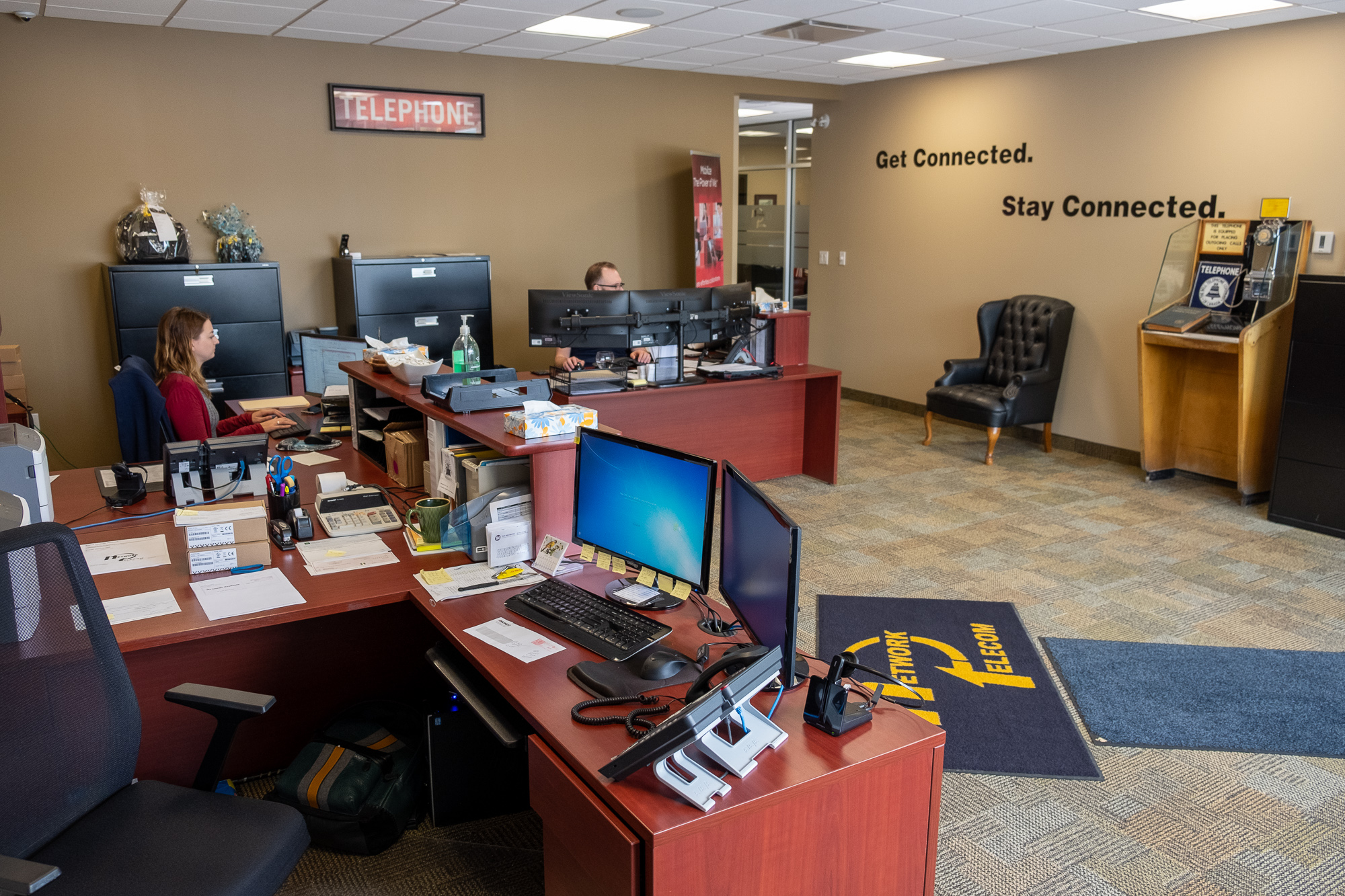Unified communication is a term that refers to how we connect the various systems we use in the digital workplace and to the collaboration tools themselves. Click on the sections below to learn more.
- Unified Communications: A Detailed Explanation
- Benefits of Unified Communications
- Tools Used in Unified Communications
- Unified Communications FAQ
If you would like to advise about which telecommunication tools would work best for your business, contact us.

Learn more about the rapid growth of unified communications
Unified Communications
1. A Detailed Explanation
In the past, workers were confined to a specific desk in an office, with a phone and computer screen. With the rapid growth of technology, that scenario has vastly changed. You now have tools that will allow you to work remotely and share your skills and resources across the globe. Unified communications can provide you with the direct support, flexibility, and connectivity that you need no matter where you are working from.
Unified communications have been growing in popularity in recent years as an effective solution for keeping remote workers connected. However, with the recent pandemic, the need for an effective way to work from home became a vital necessity as almost every business had to shift to remote work for the vast majority of their employees.
Now that the shift has been made, many businesses and workers have found that working remotely for some or all of their tasks is a viable and often a more economical set-up.

COVID-19 pandemic accelerated the need effectively work remotely
2. Benefits of Unified Communications
There are many great benefits to using unified communications. Here are a few of the top ones:
It is very flexible:
One of the great benefits of unified communications (UC), is its flexibility. Most service providers let you pick and choose the elements that you need to use and then you pay for the corresponding licences. You often have the choice of a bundle of services that end up being cheaper to purchase as opposed to paying for each individual component.
It can increase productivity:
You are able to access work and communicate with your co-workers no matter where you are. You do not have to waste time travelling back to your desk to access a file that you need or to send an urgent email. You can also choose the most effective type of communication method to keep in touch with your co-workers and customers.
It can improve collaboration:
You can access documents that other coworkers are working on in real-time. It allows you to see updates and make changes that your whole team can view. You can also have video meetings with your whole team regardless of where they are located in the world.
It can improve your IT security:
Your IT team will be able to more easily manage tasks such as security patches and compliance updates. It also makes it easier to standardize security policies.
It gives you consistency:
If you are working remotely, you will be able to connect and collaborate using the same tools that the rest of your team uses. This means that you won’t need to do additional training on different software and everyone in your organization will be using the same tools.

Unified communications make it easier for remote workers to collaborate
3. Tools Used in Unified Communications
There are a wide variety of business communications tools that can be integrated to form your unified communications. Here is a list of the most common ones with a brief explanation of each.
Instant Messaging:
Instant messaging is a text-based form of communication where two people have one conversation in an online chatroom using their mobile device or computer.
Unified Messaging:
Unified messaging integrates features such as voice, fax, and email messages into your Inbox. It allows you to access different types of messages in one location.
Collaboration Tools:
Collaboration tools allow users to work together or “collaborate” at the same time. These tools include features such as:
- Virtual whiteboards
- Real-time audio and video conferencing
- Enhanced call control
The following video shows you how a virtual whiteboard works.
Virtual whiteboards are an effective collaboration tool
Audio Conferencing:
Audio conferencing is similar to a traditional phone call in that you just have audio for your call; however, with audio conferencing, you do not dial each other’s phone number. Instead all of the people on the conference call dial into a central system that connects the participants together.
Video Conferencing:
Unlike a web conference which is basically a one-way communication platform, video conferencing is designed for two-way communication or more. Every person on the call can talk and see each other. It is a great method for collaboration.
Mobility:
Mobility means that you can access your communication services in different places and on different devices. For example, you can be at home, but you are able to sign in and check your work emails from your tablet. In addition, you could have calls that come to your work phone transferred to your cell so you can answer them and appear to be in your office.
IP Telephony:
IP telephony refers to voice communications that use the Internet instead of a regular landline. It is also referred to as VoIP (Voice over Internet Protocol). Unlike landline phone calls, you do not require a public switch telephone network in order to call someone.
IP Telephony (VoIP) lets you make voice calls over the internet
4. Unified Communications FAQ
Here are answers to some of the most commonly asked questions about unified communications.

UCaaS includes all business communications routed over the internet.
Looking for Unified Communications Advice? Contact Network Telecom
Whatever your business telecommunications needs are, Network Telecom can help.
We have been selling, installing, and servicing every type of phone system for over 40 years.
We can even help with training you and your employees on the features of your new phone system so that you can all use it as efficiently as possible.
If your phone system is not working as it should, our trained technicians are available to help 24 hours a day, 7 days a week, 365 days a year.
We carry a huge selection of parts in order to quickly solve any component issues you are experiencing.


In addition to our accredited and certified technical expertise, we offer:
- Consultative Sales
- Cloud Services
- Ongoing Support
- Voice Mail Systems
- System Design + Consulting
- System Admin + User Training
- PA Systems
- VoIP Specialist
- Network Cabling
“Network Telecom was wonderful to work with. Helpful and knowledgeable, their team transitioned our office to the new phone system with ease. They were also available to answer concerns and provide additional support post transition. Would definitely recommend their services. Thank you to the team at Network Telecom!”
“We just had an installation done today and it was a great experience. I am not at all tech savvy but everything was explained in a helpful and patient manner. The system seems great and we are really looking forward to running a more efficient office. Highly recommended!”
“Outstanding Service! We had a full phone system installed at a brand new facility and the experience was great. From sales to service the team followed through. The support we have received so far has been excellent. During our install the Network Telecom team even stepped in to help another company who couldn’t complete their portion of the install on time. They truly understand the big picture and will do what it takes to ensure the install is completed to keep your business up and running. 10/10”
